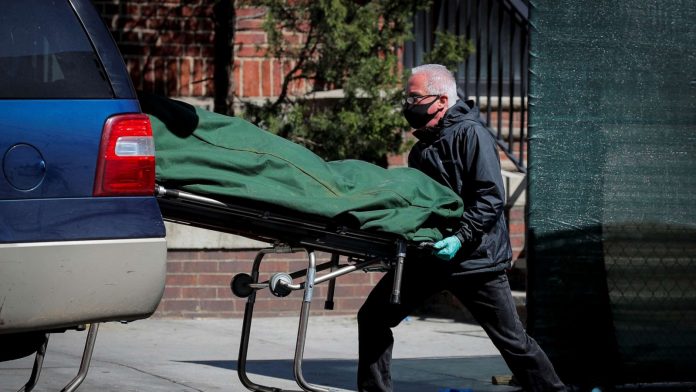The number of people who have died from the novel coronavirus in the United States surpassed 60,000 on Wednesday, April 29, based on the most recent data available from Johns Hopkins’ Coronavirus Resource Center.
More than 1 million people had tested positive for COVID-19 and more than 117,000 had recovered in the U.S. as of April 29, according to Johns Hopkins. Across the world to date, there were more than 3 million confirmed cases, 226,000 deaths and 964,000 recoveries.
The 60,000 death mark is particularly notable, as President Donald Trump and officials on his coronavirus task force previously suggested that the U.S. death count would likely remain closer to 60,000 rather than the 100,000 to 200,000 that other models had projected.
In an April 21 White House Coronavirus Task Force press briefing, Trump said, “We would have had millions of deaths instead of — it looks like we’ll be at about a 60,000 mark, which is 40,000 less than the lowest number thought of.
Dr. Anthony Fauci, U.S. National Institute of Allergy and Infectious Diseases Director, also noted earlier in April that the final death toll “looks more like 60,000 than the 100,000 to 200,000.”
The U.S. crossing the 60,000 threshold comes at the same time cities and states are considering reopening parts of their economies or extending their lockdown orders further.
Los Angeles officials previously announced they would be extending their stay-at-home order until May 15, but the orders themselves could be eased within the next two to six weeks, according to Mayor Eric Garcetti.
On Monday, restaurants in Georgia were allowed to start providing dine-in services again. Georgia currently has more than 25,000 confirmed cases, according to the state’s public health department.
In New York City, the current epicenter of the pandemic, there have been more than 18,000 deaths from COVID-19, according to Johns Hopkins. Earlier this week, New York Gov. Andrew Cuomo indicated that the larger stay-at-home order would extend beyond May 15 in some parts of the state, but some restrictions could be eased if conditions were met, such as having appropriate hospital capacity.
Stocks rose on news that FDA approval for remdesivir, a drug that could help treat COVID-19 patients from Gilead Sciences, “could be imminent.” As of April 29, there was still no approved treatment or vaccine for COVID-19.
Source: FOX 35 Orlando
















